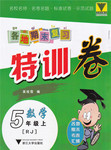题目内容
Many parents often say their teenage son looks like a grown man.He is taller than his father,and his voice has turned deep.But his behavior is another matter.He makes hurried decisions, tries to smoke and drink,drives cars too fast and always makes his parents annoyed.Why?
That's because his brain is developing more slowly than his body.Researchers at the National Institute of Mental Health and UCLA carried out a long?time study of normal brain development.They found that the frontal lobe (大脑额叶 ),the area responsible for understanding future influences,making wise decisions and controlling impulses(冲动),does not become mature (成熟的)until the early 20s.
Because of the immature brains,teenagers are easily influenced by the environment and unexpected behavior.So their death rates rise sharply.Research shows that rates of death by injury for people between the age of 15 and 19 are six times those seen in kids aged 10 to 14.The government reports that teens are four times more likely than older drivers to be involved in a car accident and three times more likely to die in one.
Teens may be attracted to drugs and alcohol.Rates of drug and alcohol use are high when compared with those of other age groups.Frances Jensen and David Urion,doctors at Children's Hospital Boston and Harvard Medical School,discovered that adult brain cells recovered (恢复 ) more quickly from alcohol influence than younger brain cells.Jensen said in Harvard Magazine: “For a teenager,what he drank on the weekend is still with him during that test on Thursday.”
Teens aren't making trouble on purpose.They long for freedom,but they are still young.They're still forming into the adults they'll eventually be.And,of course,they won't be at this age forever.Home education plays one of the most important roles in young people's growth,and the influence is most lasting.Finally,they will grow up and become wise adults.
1.Which of the following is NOT the typical behavior of a teenage boy?
A. Driving cars too fast.
B. Making their parents annoyed.
C. Quarreling with their friends.
D. Making careless decisions.
2.Teens death rates rise sharply because of their ________.
A. immature brains
B. brave and impatient character
C. small and cheap cars
D. changeable environments
3.From the last paragraph,we can make the conclusion that ________.
A. teenagers should have freedom to do what they like to do
B. teenagers still require lots of care and attention from their parents
C. teenagers usually make their parents annoyed on purpose
D. teenagers actually know how to make wise decisions
 中考解读考点精练系列答案
中考解读考点精练系列答案 各地期末复习特训卷系列答案
各地期末复习特训卷系列答案The Hearst Castle
Hearst Castle is a park on the central California coast and a National Historic Landmark. It was designed by Julia Morgan for William Randolph Hearst from 1919 until 1947. In 1957, the owner donated the fortune to the state of California. Since that time it has been a state historic park where its large collection of art and antiques are open for public tours. Despite its location far from any urban center, the site attracts roughly one million visitors per year.
Guided Tours
• Tour One is recommended for first time visitors. It now includes the movie, Hearst Castle Building the Dream.
• Tour Two gives visitors a closer look at the main house's upper floors, Mr. Hearst's private suite, the libraries, and the kitchen.
• Tour Three looks at the Castle's North Wing, guest rooms and guest house Casa Del Monte.
• Tour Four includes the impressive gardens and grounds, the largest guesthouse, the wine basement, and the Hidden Terrace.
• The evening tour is a special tour that allows visitors to experience the Castle at night as one of the Hearst's own visitors might have.
Ticket Prices
Hearst Castle accepts VISA, Master Card, American Express and Discover. Free day use parking is available for automobiles, motorcycles, tour buses and recreational vehicles.
Tours | Adult | Ages 6-17 |
Tour 1 | $24 | $12 |
Tours 2, 3 or 4 | $24 | $12 |
Evening tour | $30 | $15 |
* Children under 6 are free when accompanied by a paying adult.
Reservation (预订)Information
Reservation Call Center Hours | |||
Dates | Monday-Friday | Saturday-Sunday | |
March-September | 8am to 6pm | 8am to 6pm | |
October-February | 9am to 5pm | 9am to 3pm | |
While tickets may be purchased at the Visitor Center upon arrival, tour reservations can be made online now or by calling 1-800-444-4445, see below for times.
Visit www.hearstcastle.org for more information.
1.Who does the Hearst Castle belong to at present?
A. William Randolph Hearst. B. Julia Morgan.
C. The Hearst Corporation. D. The state of California.
2.If you are quite interested in wine, which tour will you choose?
A. Tour One. B. Tour Two.
C. Tour Three. D. Tour Four.
3.If a couple take Tour One with their 5-year-old son, how much will they pay for the tickets?
A. 36. B. 48
C. 60. D. 75.
4.Which of the following is the available time to book tickets by phone?
A. At 8 am on Monday in February. B. At 9 am on Sunday in March.
C. At 7 pm on Friday in September. D. At 6 pm on Saturday in October.

